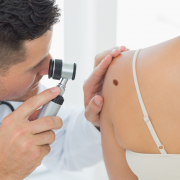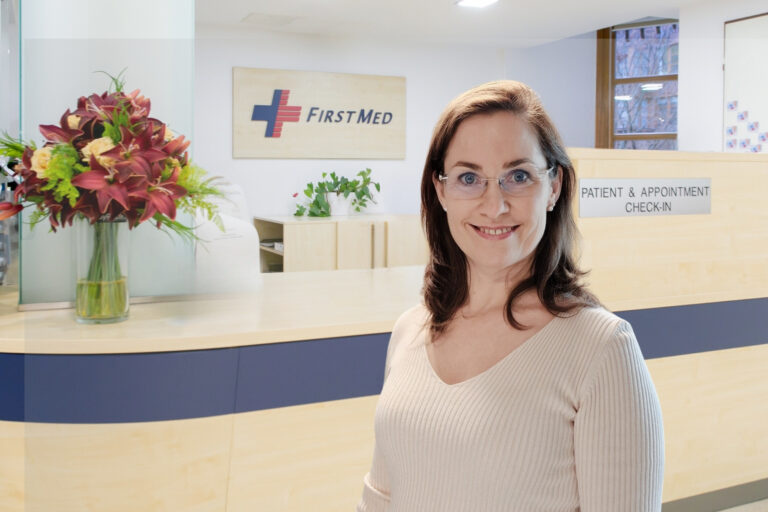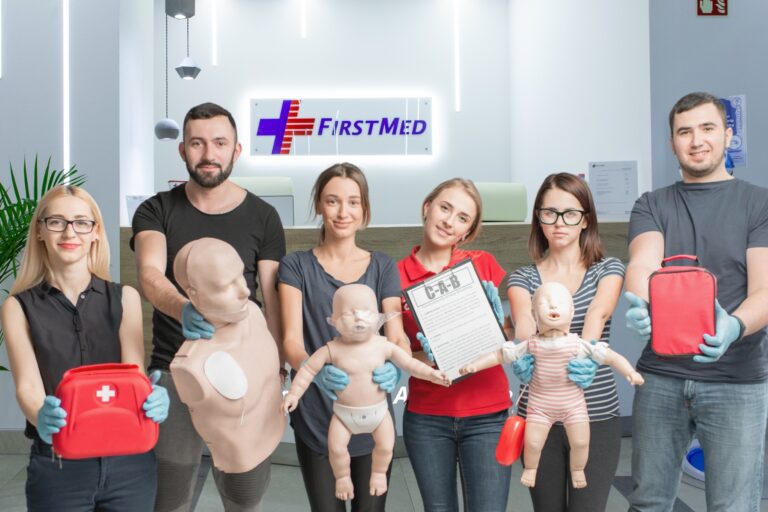
It’s a pleasant surprise when Dr. Varjú greets you with a quick smile and an easygoing demeanor, and before you’re through the door, he immediately enquires about your health. Suddenly, there is no point in being embarrassed about pointing out your blemishes, what might be irritating, unsightly, or really worrying; what might be a case for skin surgery; or what should be left alone, simply smeared with cream or covered up. It may not be your lung or heart, but it’s just as important for your skin.
This time we asked Dr. László Varjú about his background and his role at FirstMed.
Where did it all start?
Having completed my medical studies at the University of Graz in Austria and undergone a residency in family practice at the University of Michigan in the United States, I joined a private practice in Illinois affiliated with St. Anthony’s Memorial Hospital. I had full privileges, took care of my own patients, and was also the first assistant at major surgical procedures. I rotated among the three major regional hospitals providing full care for infarction, strokes, acute diabetes, and just about everything, even emergency deliveries if it was necessary.
Later, after joining the US Air Force, I was stationed at Whiteman Air Base in Missouri then Ramstein Air Base in Germany, where I carried out emergency care. I was deployed several times, even spending four months in Hungary at the Taszár Air Base during the Balkan Wars.
When did you join FirstMed?
In 2000, after my distinguished medical career in the US Air Force, I retired with the rank of Lieutenant Colonel. I joined FirstMed with over 10,000 hours of experience in emergency medicine, active medical licenses in Missouri and Illinois, as well as a member of the American Academy of Family Practice.
Many of our international patients find it reassuring to have an experienced doctor who has studied and is licensed abroad. I am one of those here at FirstMed.
What medical issues do you mostly work with?
Mostly I like to work in the area of cosmetic and acute skin therapies, from the removal of unsightly spider veins and facial epilation (hair removal) to the cosmetic repair of major scars and progressive treatment of ingrown toenails. Similarly, I can also remove benign sebaceous cysts, moles, and lipomas when they are causing discomfort to my patients. With advanced diagnostic tools, I can also identify and remove potentially cancerous areas of skin.
Tell us some advice on how we could take better care of our skin.
To lessen the need for skin surgery later in life, particularly as the rate of skin cancer follows a worrying upward trend, I advise patients to avoid the sun between noon and three o’clock in the summer and to use a skin cream of SPF 50 or more. I also highly discourage tanning salons. I recommend you be especially vigilant about changes in color and size of dark lesions or birthmarks.
Do not hesitate to ask for a dermatoscopy consultation that can determine if removal is necessary by hyfrecation (electrical elimination) or desiccation (drying-out) and if a biopsy is called for to determine the status of melanomas or carcinomas.
What do you do when not treating skin problems?
I enjoy spending time at our house near Lake Balaton where I tend to my fruit orchard and herb garden.
Dr. Varjú is providing special skincare treatments on alternate Saturdays.




